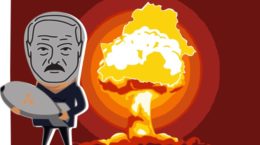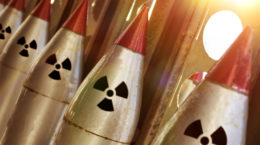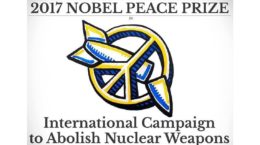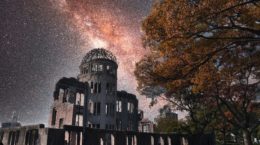My name is Olga Karach, and I have dedicated nearly 20 years to peacebuilding efforts. As a feminist, an educator and a human rights defender, I lead the human rights organization Our House, currently operating in exile in Lithuania. Like many Belarusians, I have been deeply affected by the war in Ukraine. The shock of this conflict has forced me, as it has others, to confront painful truths and illusions about our world, and the lessons we must learn are critical for charting a path toward peace.

A Journey Through Shocking Realizations
Before the war, I, like many others, held onto certain comforting illusions about human nature, the resolution of conflicts, and the role of war in our societies. However, the outbreak of hostilities between Russia and Ukraine shattered these beliefs, revealing uncomfortable and unexpected truths.
Surprise #1: Faith in Weapons as Divine Solutions
From the onset of the war, I observed an alarming trend: people began placing blind faith in weapons as the ultimate means to resolve conflicts, much like faith in a deity. Over time, this belief expanded to include nuclear weapons, seen as the ultimate “solution” to global problems. The rapid normalization of nuclear armament, even as a deterrent, is profoundly disturbing.
Surprise #2: Heroism Defined by Violence
In our region, heroism continues to be defined through violence—either by killing or by sacrificing oneself. The absence of peaceful models of heroism highlights a cultural failure to imagine alternatives, leaving societies trapped in cycles of aggression and martyrdom.
Surprise #3: The Seduction of Militaristic Propaganda
Militaristic propaganda thrives on its simplicity. It offers easy, slogan-like answers to complex problems, demanding little critical thought. In contrast, promoting peace is a much harder endeavor, requiring nuanced understanding, expertise, and a moral compass. This stark contrast makes the seductive simplicity of militaristic narratives especially dangerous.
Surprise #4: The “War” Excuse
Even in countries like Lithuania, which are not directly involved in the war, the phrase “Well, we are at war” has become a blanket excuse for unresolved social and economic issues. Rising food prices, soaring energy costs, and other challenges are conveniently attributed to the war, stalling meaningful solutions.
Surprise #5: Polarization and Propaganda Bubbles
Expressing dissent or presenting inconvenient truths now frequently results in being labeled a “Putin agent” or accused of spreading Russian propaganda. This tactic, while effective in silencing voices, has deepened societal polarization, with people retreating into isolated bubbles of propaganda and mutual distrust.
Surprise #6: War as a False Purpose
For some, war has provided a clear sense of purpose, allowing them to focus solely on survival, rather than grappling with past traumas, future responsibilities, or their roles within society. This narrow focus is dangerous, as it reduces life to the pursuit of violence and survival.
Surprise #7: The Allure of Godlike Power
Perhaps the most shocking revelation is the addictive nature of the power conferred by war. Like terrorism, war offers the illusion of absolute control over others, seducing individuals into believing they hold godlike power to give or take life. This mindset is profoundly destabilizing and dehumanizing.
A Path Forward
Faced with these harsh realities, it is clear that we must break free from these traps and build a future based on peace. This requires immediate, actionable steps:
-
Supporting Conscientious Objectors and Deserters
It is imperative to assist men who refuse to participate in the war, particularly conscientious objectors and deserters from Belarus, Russia, and Ukraine. By providing them with resources and protection, we can weaken the machinery of war. -
Advocating for Nuclear Disarmament in Belarus
The presence of nuclear weapons in Belarus represents a growing threat to regional and global security. Efforts must focus on dismantling these weapons and curbing the spread of nuclear armament in the region. -
Building a Line of Peace along the frontlines of the war
Peace must be actively constructed, particularly along the frontlines of the war. Through diplomacy, humanitarian aid, and grassroots advocacy, we must create spaces where dialogue can flourish and violence can be curtailed.
A Call for a Reinventing the Peace Movement in the Face of Nuclear War
The time has come for a resurgence of the peace movement—a new wave of energy and commitment to counteract the rising tide of militarism. This movement must challenge the narratives of violence with the transformative power of love, understanding, and cooperation. Together, we can envision a world where heroism is defined by acts of compassion and courage, rather than violence.
The war in Ukraine has exposed the fragility of our shared humanity, but it has also offered an opportunity to rebuild a more just and peaceful world. Let us seize this moment, not with weapons, but with unwavering dedication to peace.
Olga Karach, “Our House”, Belarus
In order for us to help others to protect their rights, we need your help. You can help here, click on any of the buttons on the left or right, and then repost the news, like it on our social networks here, here and here, or take part in the clean-up day.
![]()











